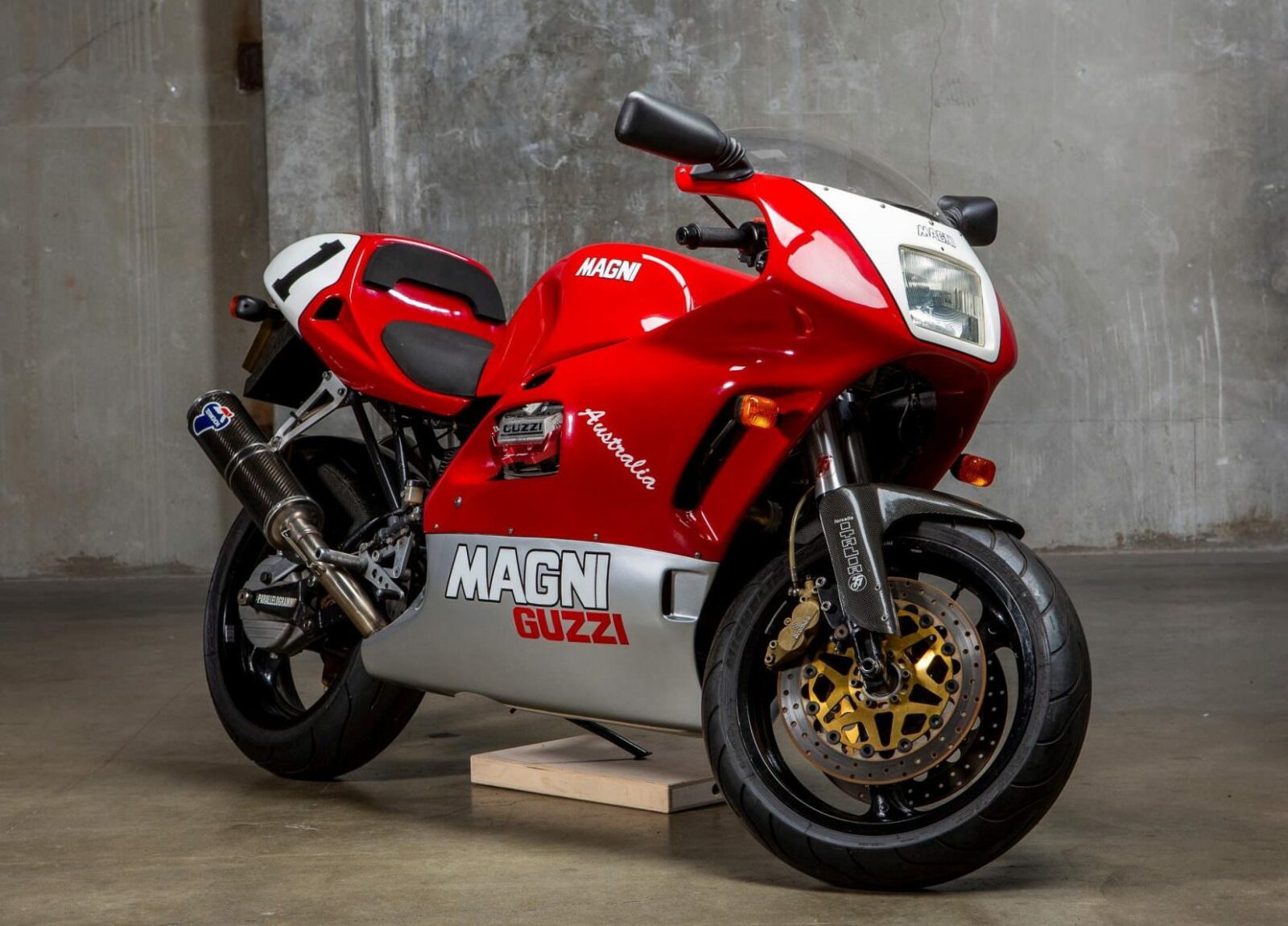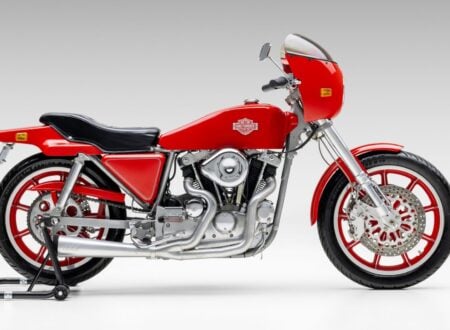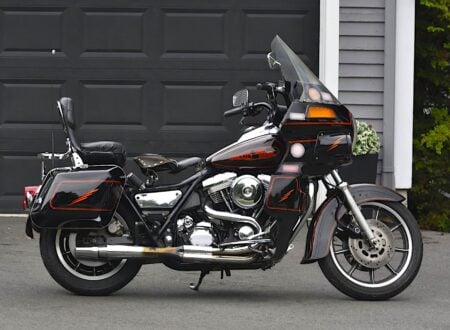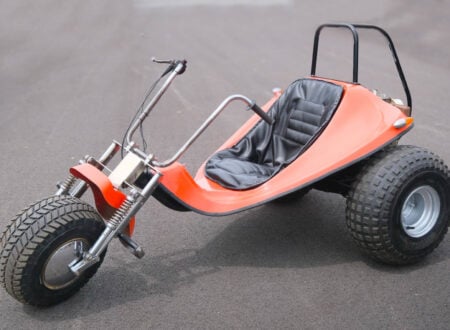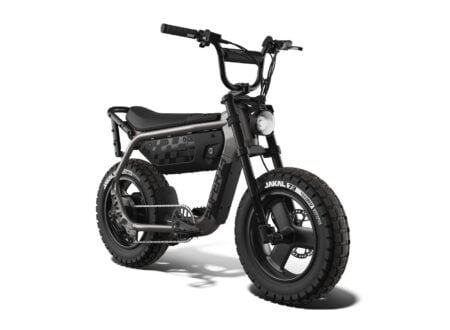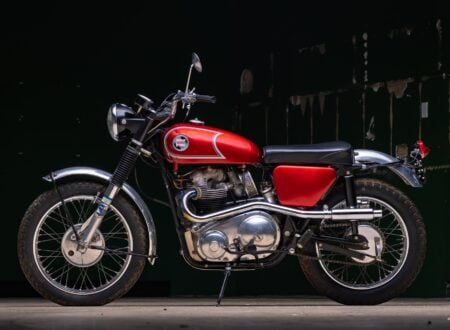The Magni Australia is an exceedingly rare Italian superbike from the mid-1990s that was named after Australia thanks to the remarkable efforts of Ted Stolarski and his racing team based out of Perth.
The bike has a bespoke Magni tubular steel frame with a Magni-designed Parallelogramo swing arm, and it was powered by the then-new Moto Guzzi V-twin engine with its single overhead cam operating four valves per cylinder.
Fast Facts – The Magni Australia
- Magni is one of the most revered names in the history of specialist Italian motorcycle manufacturing. The company was founded in 1977 in Samarate by Arturo Magni, a legendary motorcycle engineer who had worked on Gilera race bikes before switching to MV Agusta where he managed the team as they won 17 consecutive 500cc World Championships between 1958 and 1974.
- Magni was founded immediately after MV Agusta retired from racing at the end of the 1976 season. The company originally made performance parts for MV Agusta motorcycles and later started building high-performance motorcycles around engines from Honda, BMW, Moto Guzzi, Suzuki, and others.
- In the early 1990s Ted Stolarski, a race team owner from Perth in Western Australia, got his hands on two new Moto Guzzi 4V-OHC engines and built race bikes around them in collaboration with Magni, and achieved excellent results.
- The Magni Australia was inspired by these two motorcycles and subsequently named after them, 75 were made followed by 50 second generation bikes later in the 1990s.
The Great Arturo Magni
Arturo Magni started out as an engineer at Italian motorcycle manufacturer Gilera in 1947, working in the successful racing department. Three years later he made a decision that would prove fateful, he left Gilera and went to work at MV Agusta where he would oversee the most dominant 500cc Grand Prix team in world history.
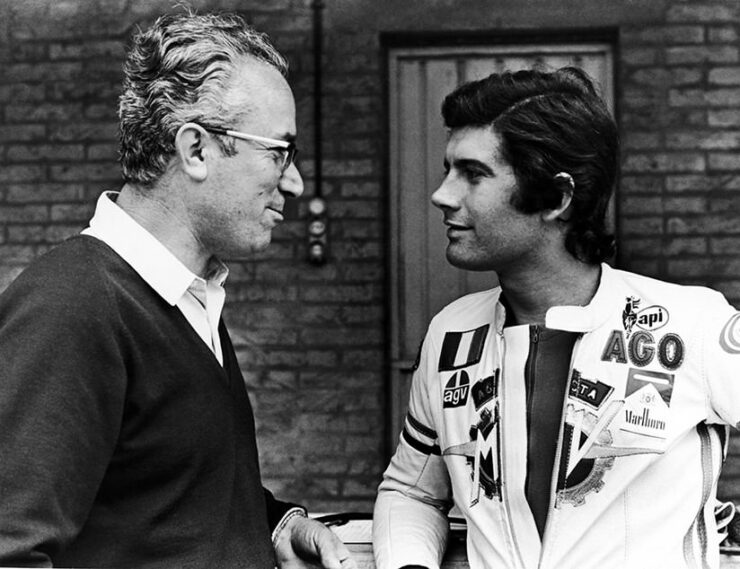

As the Team Manager and Technical Coordinator at MV Agusta, Magni would lead the team to wins in the 125cc, 250cc, 350cc and 500cc titles simultaneously in 1958, 1959, and 1960. He then followed this up with a 17 year unbroken streak of wins in the 500cc class of the World Championship between 1958 and 1974.
In total MV Agusta won 270 Grand Prix motorcycle races, 38 World Riders’ Championships, and 37 World Constructors’ Championships under Magni’s tenure, managing riders like Giacomo Agostini, Mike Hailwood, John Surtees, and Phil Read.
In 1976 when MV Agusta announced that they would be retiring the team from future competition, Magni chose to leave and founded his own company the next year with his sons Carlo and Giovanni. The new firm was named Elaborazioni Preparazioni Magni (EPM), however it’s better known simply as Magni.
Initially the company made performance parts for MV Agusta motorcycles, which made a lot of sense given Magni’s experience with the team and its motorcycles.
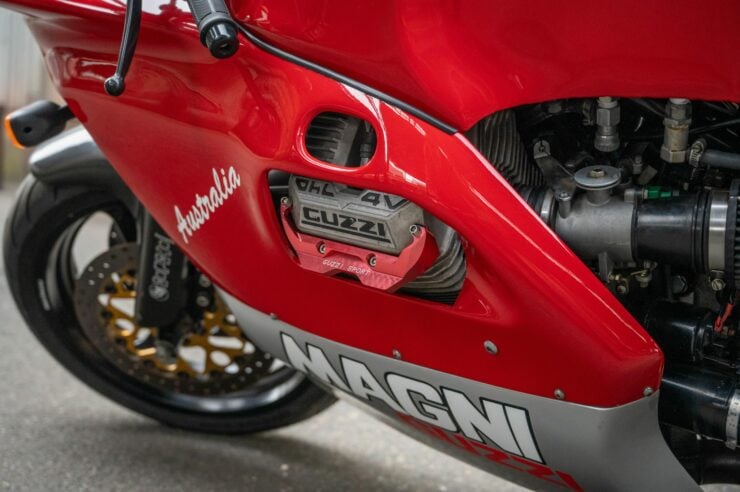

Over time they branched out into building specialized low-volume production motorcycles using Honda engines, followed by engines from BMW, Moto Guzzi, Suzuki, and more recently, MV Agusta once again.
The Magni Australia
The Magni Australia is one of the rarer motorcycles developed by the Italian company, it was inspired directly by the successes that had been achieved by Ted Stolarski and his motorcycle racing team based out of Perth in Western Australia.
Stolarski had asked Moto Guzzi for a pair of their then-new V-twin engines with a single overhead cam and four valves per cylinder, commonly called the 4V-OHC. This engine was far more powerful and better suited to racing than the older two valve, pushrod V-twins from the Italian motorcycle marque.
The engines were put to good use by Stolarski who essentially took each engine and built a modern race bike around it working with Magni, with top-of-the-line suspension, brakes, chassis technology, and a full aerodynamic fairing.
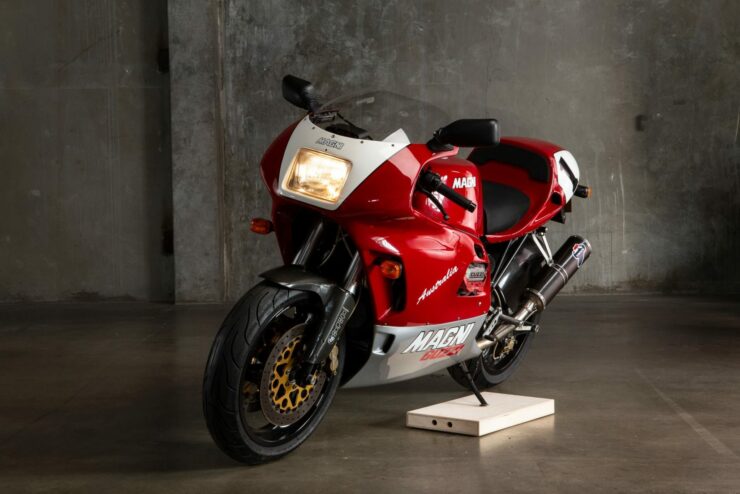

The Stolarski team enjoyed a slew of successes and it significantly elevated the profile of Moto Guzzi in Australia. It caught the attention of Magni who worked with Stolarski and Moto Guzzi to create 75 production motorcycles directly influenced by the Stolarski race bikes. They were called the Magni Australia as a result.
A second series of uprated Magni Australias were built later in the 1990s, though just 50 were made and they rarely come up for sale.
The 1994 Magni Australia Shown Here
The bike you see here is one of the first 75 that were made, it’s powered by that 4V-OHC V-twin that would prove so important to the history of Moto Guzzi.
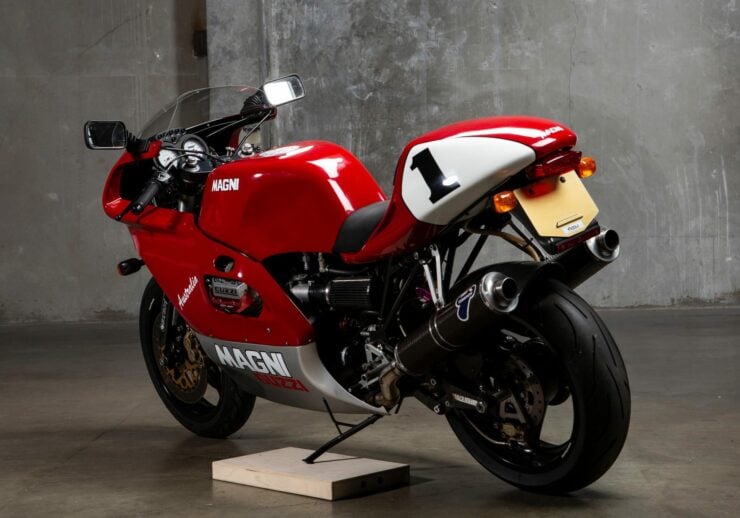

This same engine also powered the Moto Guzzi Daytona 1000, which was named in honor of privateer racer Dr John Wittner and his team who had defied the odds by winning the 1985 AMA Motorcycle Endurance Race at Daytona on a modified Moto Guzzi.
This Magni Australia has 15,553 kms on the odometer, or approximately 9,664 miles, and it’s finished in that classic red, white, and silver livery with the racing number #1 on the tail and the names “Magni Guzzi” and “Australia” on the faring.
It’s fitted with a pair of Termignoni carbon-fiber slip-on mufflers, triple Brembo disc brakes, and as you would expect it has rear-set foot controls and clip-on handlebars.
It was bought by the current dealer in 2022 out of Japan and imported into the United States. In January of this year it received a servicing which included replacing the fuel lines, cleaning the fuel tank cap, and the fuel pump.
It’s now being offered with no reserve on Bring a Trailer out of Seattle, Washington and you can visit the listing here if you’d like to read more about it or register to bid.
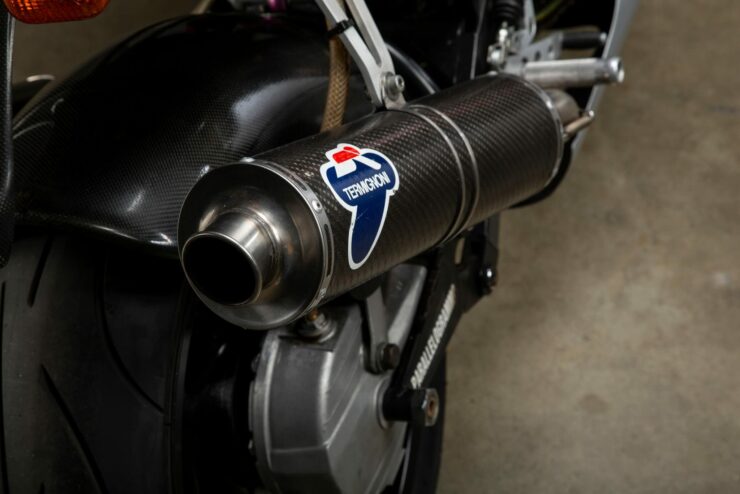
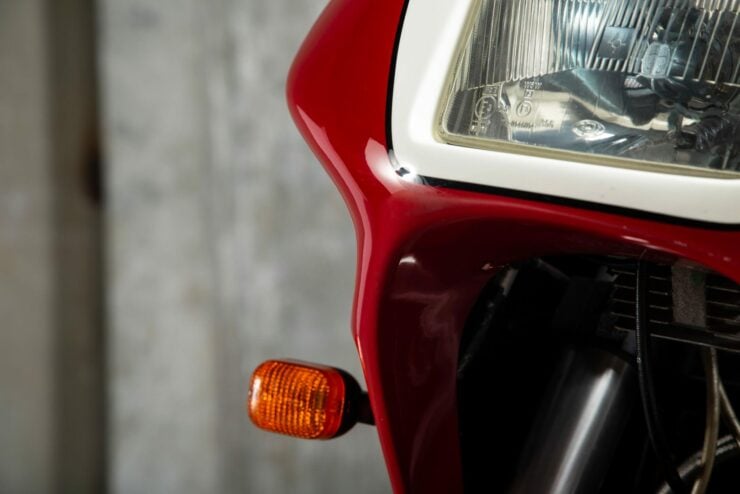
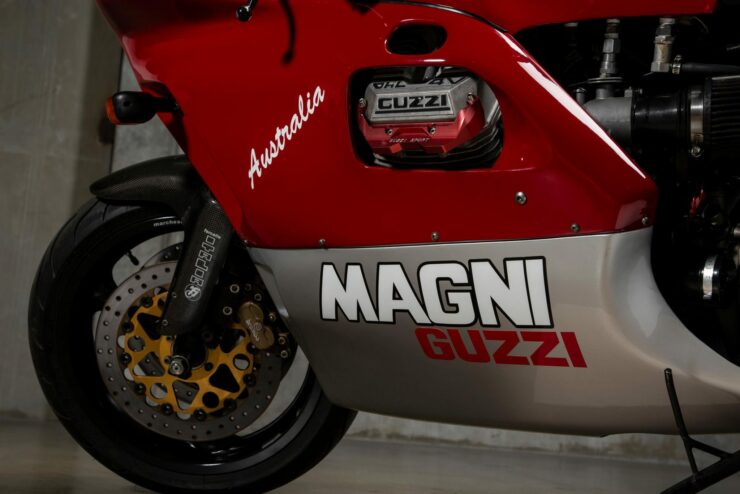
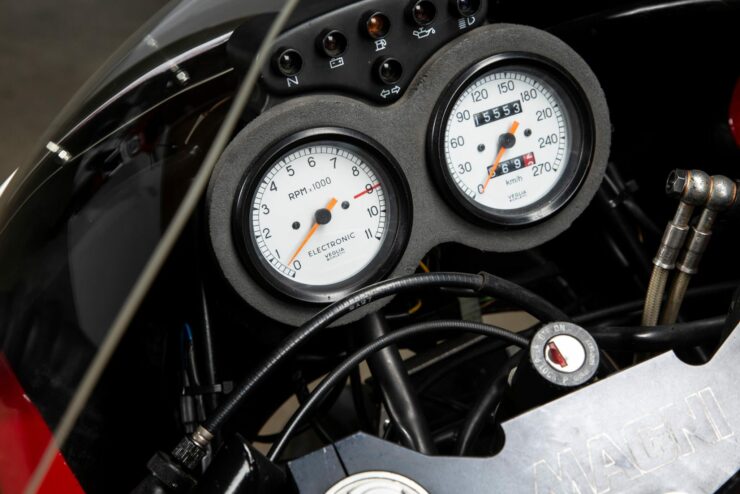
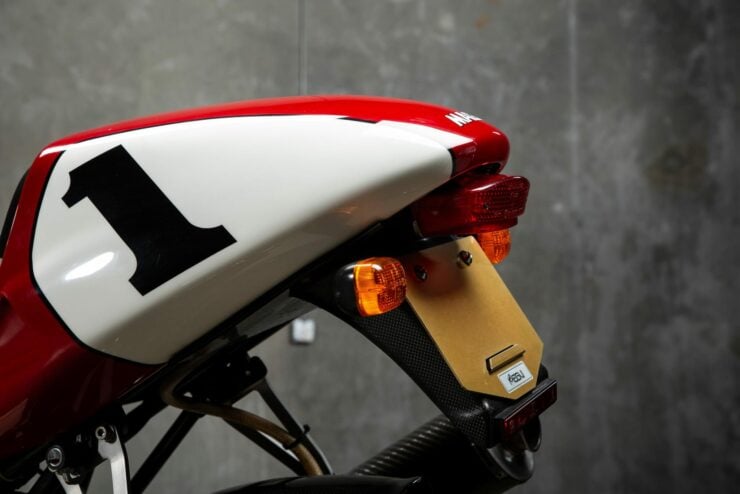
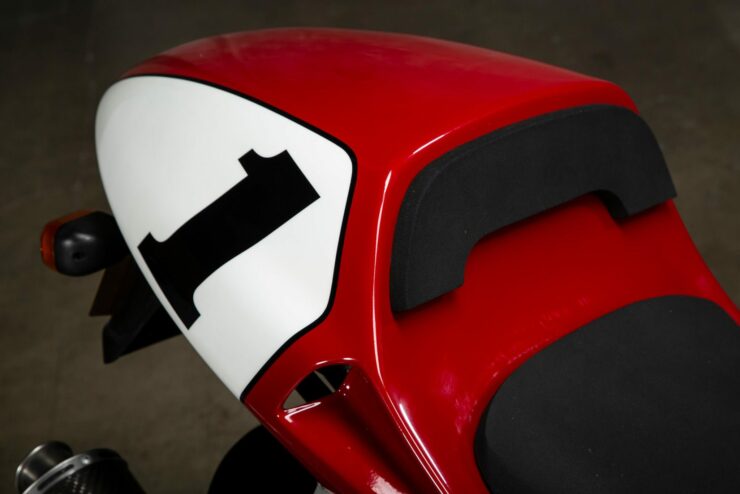
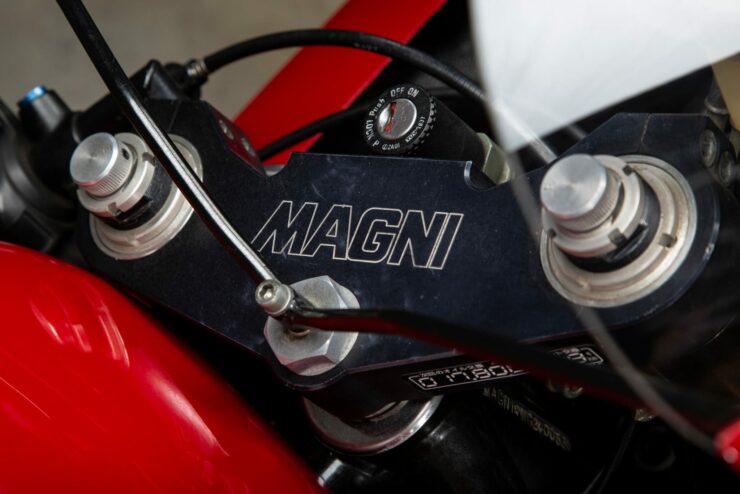
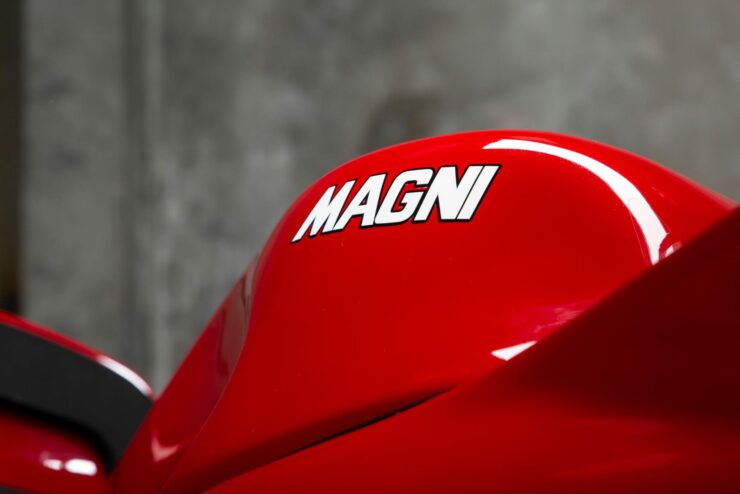
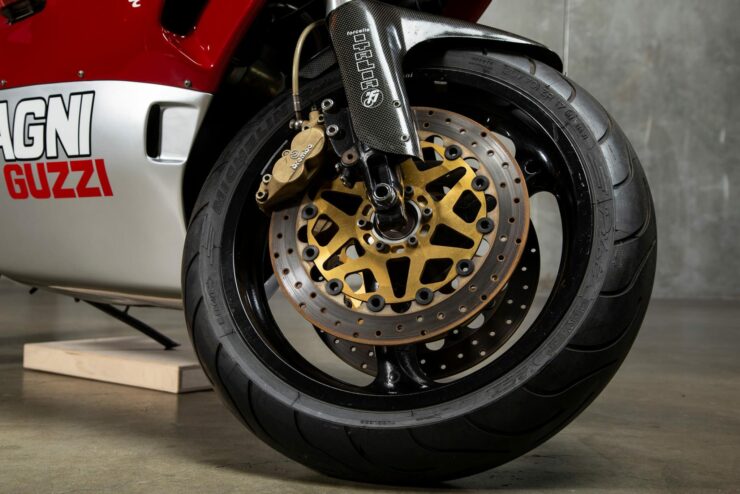
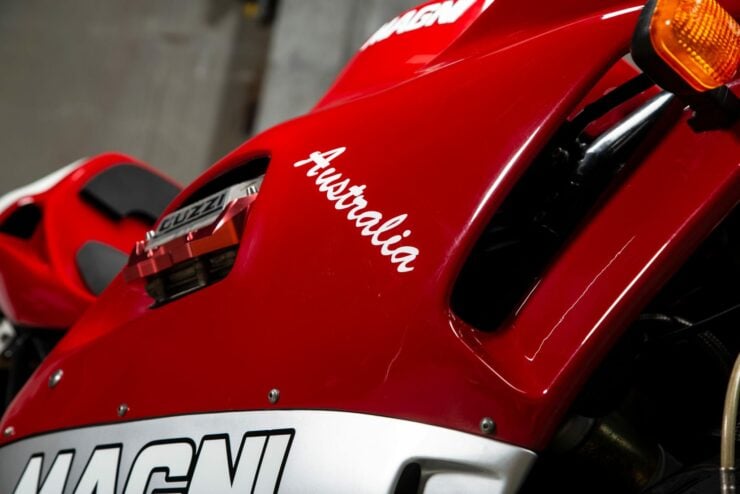
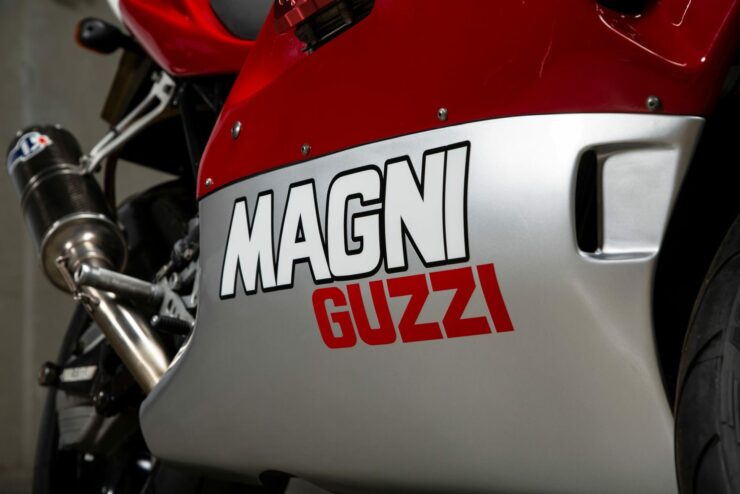
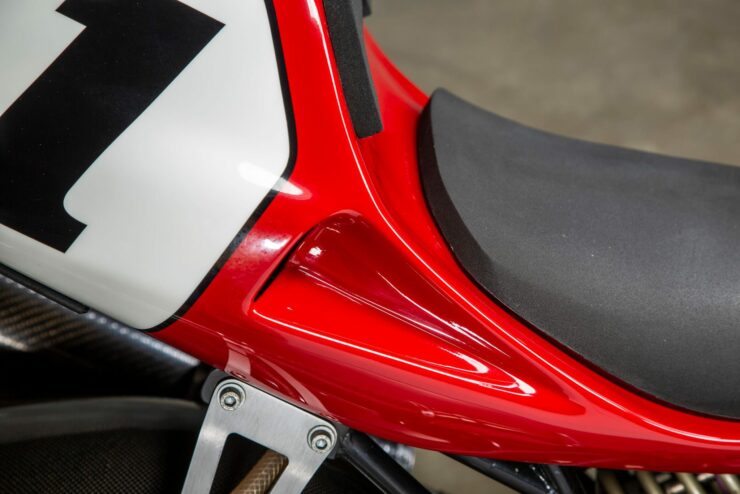
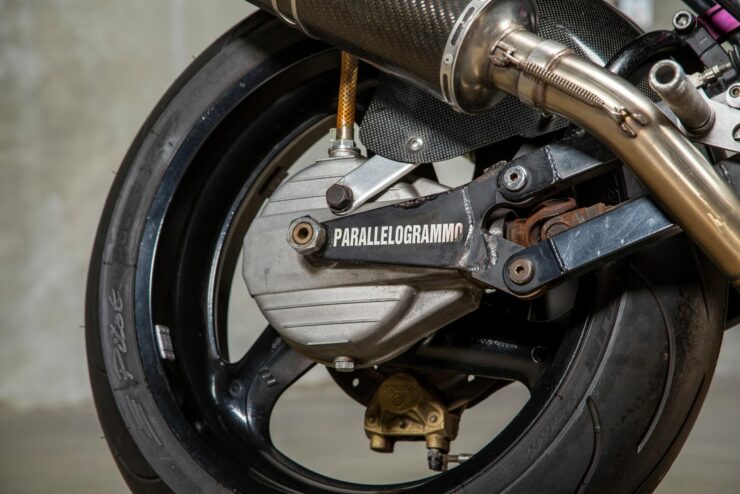
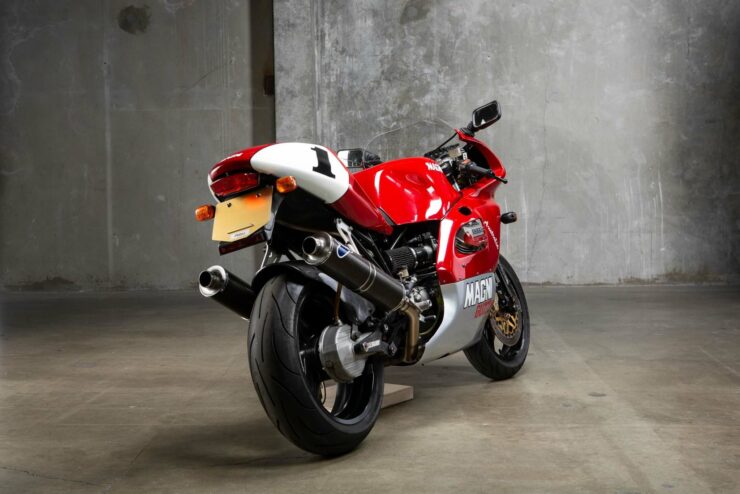
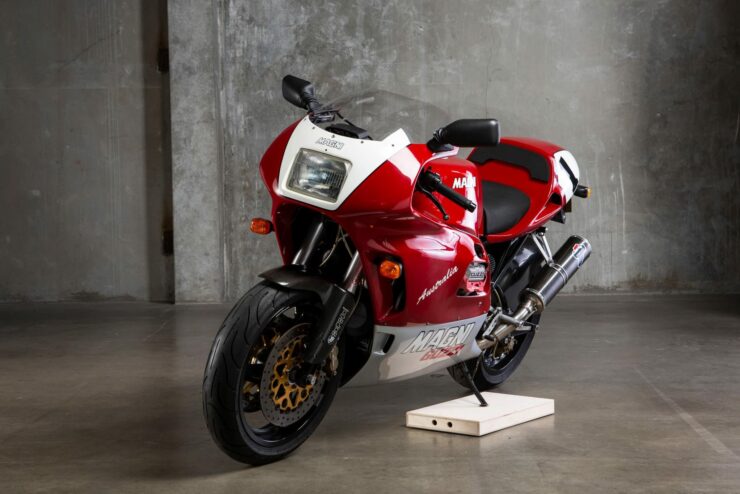
Images courtesy of Bring a Trailer

